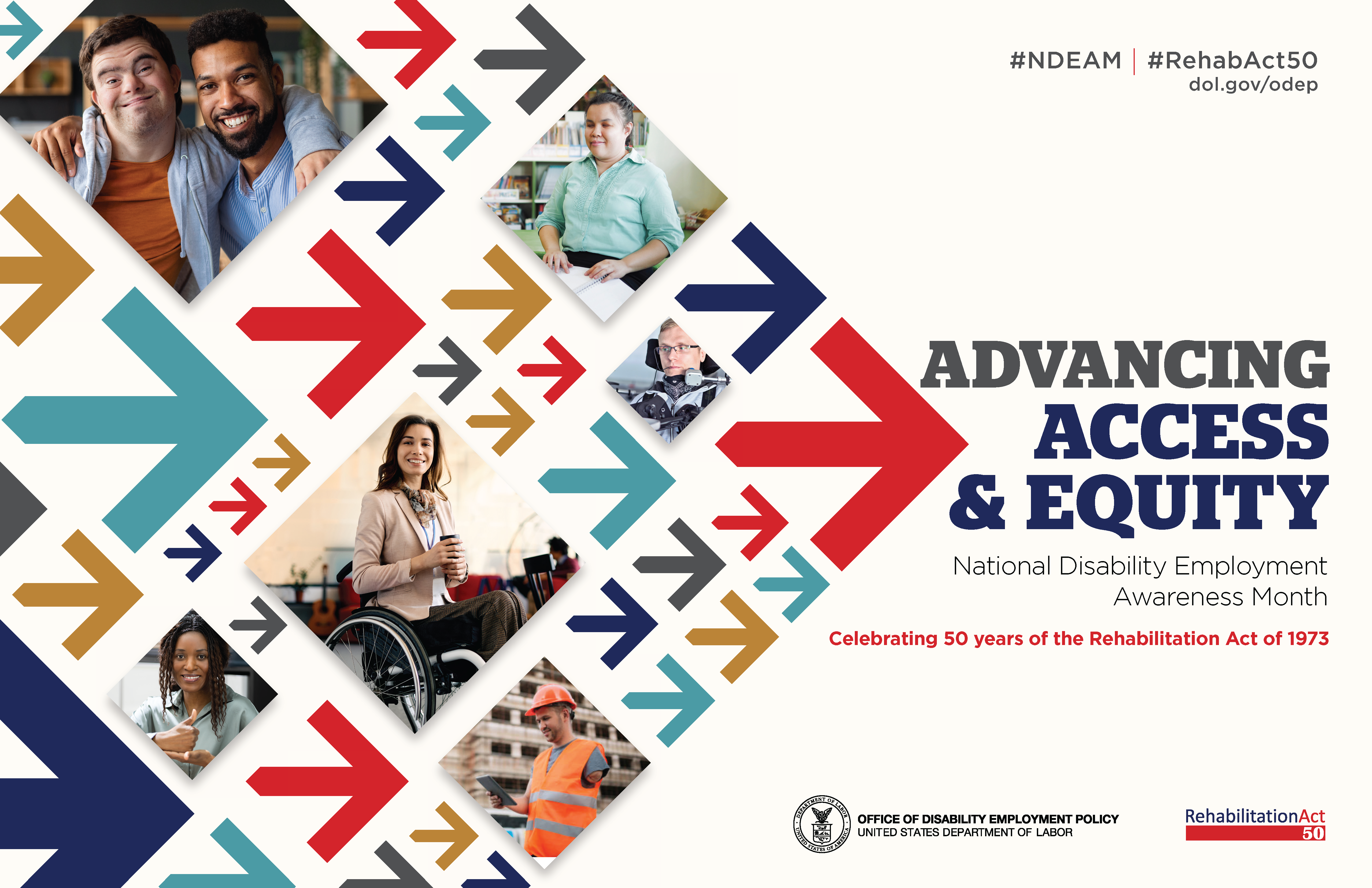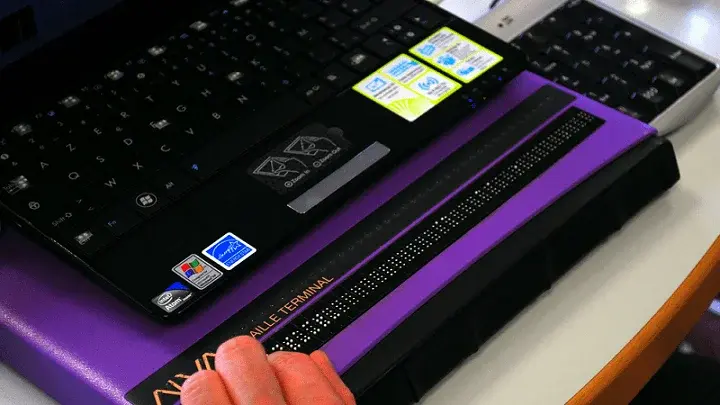As we continue through National Disability Employment Awareness Month (NDEAM), I would like to discuss something I can relate to personally that affects many other people with disabilities. Unfortunately, employers across many types of work often have preconceived negative notions about people with disabilities and our capabilities. These assumptions and beliefs are rooted in myth and can be dispelled. The truth is that those with disabilities can be just as productive, reliable, and successful in the professional world as anyone else.
In the remainder of this blog, I will attempt to bust five of the most common myths about people with disabilities in the workplace. My discussion will directly reflect the perspective of a young blind professional. However, the general theme applies to any disability.Myth: I view my disability as a negative regarding employment.
Myth Busted: The truth is quite the opposite. I view my disability as an asset of sorts in the professional world. My visual impairment gives me a unique perspective in many different areas of life. For example, my use of assistive technology and experiences with digital accessibility position me well to help companies better structure their business model to capture more of the often untapped disability market.
Another invaluable skill that I and so many others with disabilities possess is excellent problem-solving technique. Overcoming the barriers associated with my visual impairment requires creativity, adaptability, flexibility, and savvy. These are all qualities employers seek, which will be valuable in any work environment.
Myth: People with disabilities are less productive and more likely to miss work than other employees.
Myth Busted: Though many people share this belief, it is not rooted in reality. Individuals with disabilities can be just as productive, if not even more productive, than other employees. According to a study by The Institute for Corporate Productivity, individuals with developmental disabilities contributed to higher productivity rates, increased customer loyalty, and lower absenteeism. In any of my jobs, I always get the required work done promptly and satisfactorily.
While people with disabilities often must complete tasks with a different approach, it does not mean that the final product will lack quality. For example, I worked in one of the event planning offices at my college. After running one of the events, I received post-event feedback that attendees could not believe that the activity was organized and carried out by a blind person. This shock stemmed from preconceived notions surrounding blindness and the seemingly contrary fact that my work was on the same level as anyone else.
Myth: People with disabilities require expensive accommodations that are hard to implement.
Myth Busted: According to the U.S. Department of Labor, less than 40 % of people with disabilities require accommodations in the workplace. Relevant accommodations depend on the specific disability. For example, a blind person like me will have drastically different needs than someone with a hearing impairment.
Often, I already have a particular tool that will bridge the gap between my abilities and those of the other employees. An example might be the accessible email client program on my computer or the screen reader I use to access everything digitally.
Suppose the employer needs to provide an accommodation, such as a specialized accessibility tool. In that case, the cost is frequently less than $500, according to the U.S. Department of Labor. Other accommodations can be as simple as flexibility. For example, assistive technology dependents often prefer one digital system over others because of comfort, ease of use, familiarity, or overall accessibility. Allowing a screen reader user to work from a Mac instead of a Windows machine is an easy and low-cost accommodation, allowing the worker to maximize their productivity potential.
Myth: People with disabilities do not want to work.
Myth Busted: I have unfortunately heard this statement much too often in my life. So many people think that those with disabilities do not want to work. This assumption stems from low reported employment percentages among people with disabilities. This premise could not be any farther from the truth. I am a capable young professional who can and wants to be a meaningful part of a productive team.
I and many others with disabilities wish to earn a living and have the personal and financial independence of the rest of society. If anything, low employment rates among those with disabilities result from employers' hesitancy to hire us because of a falsely perceived lack of capability.
Myth: It is difficult to find employees with disabilities in the workforce.
Myth Busted: There are plenty of qualified, motivated, and eager professionals with disabilities who are seeking employment of all kinds. I disclose my disability in my resume and cover letters because I want to portray the unique strengths that my disability will bring to the work environment. Many others embrace a similar strategy.
Additionally, there are specialized platforms such as "Ability Jobs" that function like LinkedIn or Indeed but are only for job seekers with disabilities. While employers may think it is impossible to find qualified candidates in the disability community, plenty of us are ready, willing, and able to work.
Why National Disability Employment Awareness Month Matters
The myths discussed here, and others contribute to why some people with hidden disabilities may not disclose a disability or may be hesitant to request accommodations. Unfortunately, internalized bias, even with regulations like the ADA, still makes it difficult for people with disabilities to find work. I can't hide my disability. I have experienced prejudice based on these negative assumptions.
We need events like National Disability Employment Awareness Month (NDEAM). NDEAM considers the lived experiences of all workers with disabilities. I hope my myth-busting encourages companies to consider how their application and employment policies advance equity and inclusion for workers of all abilities.






